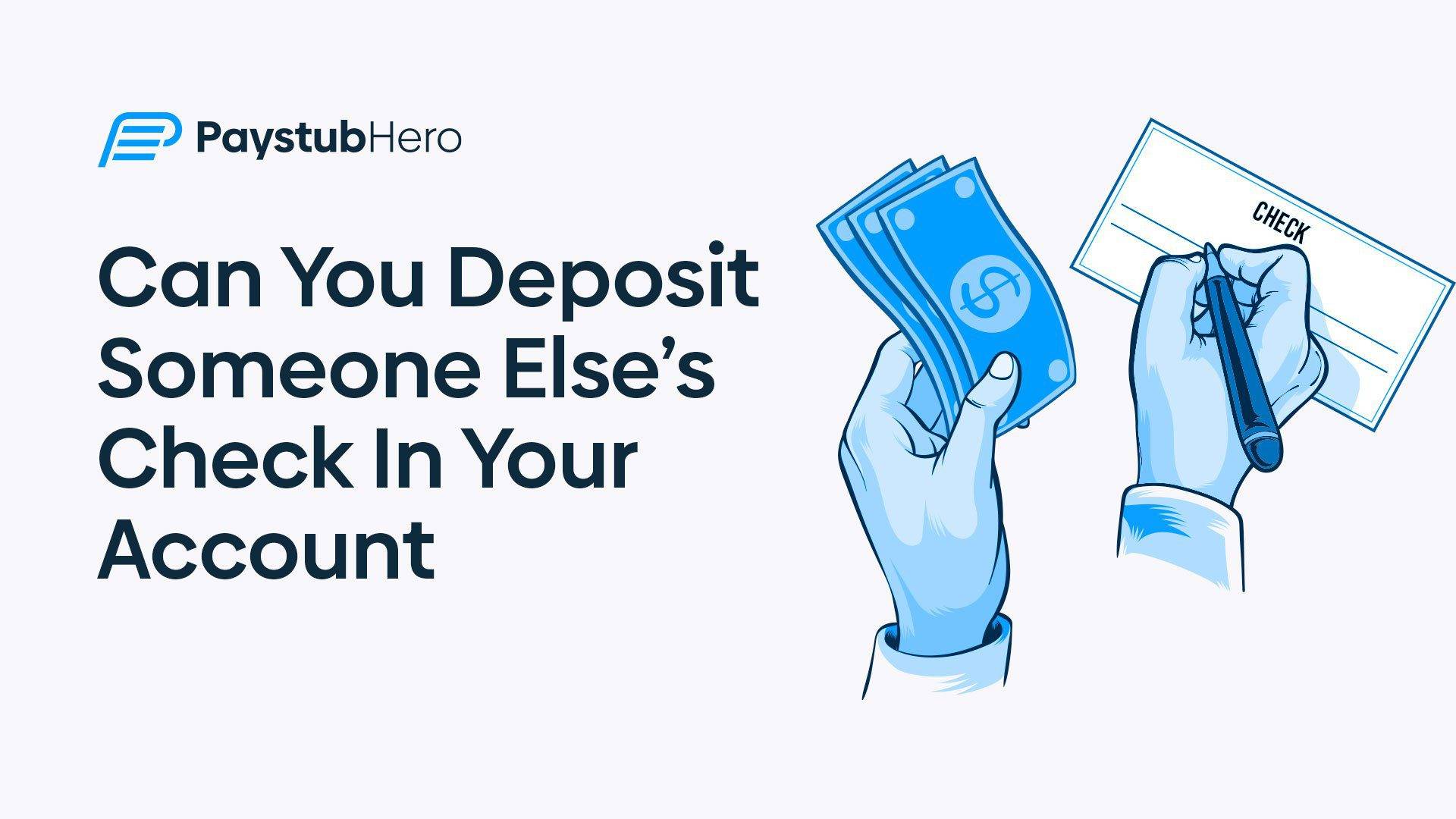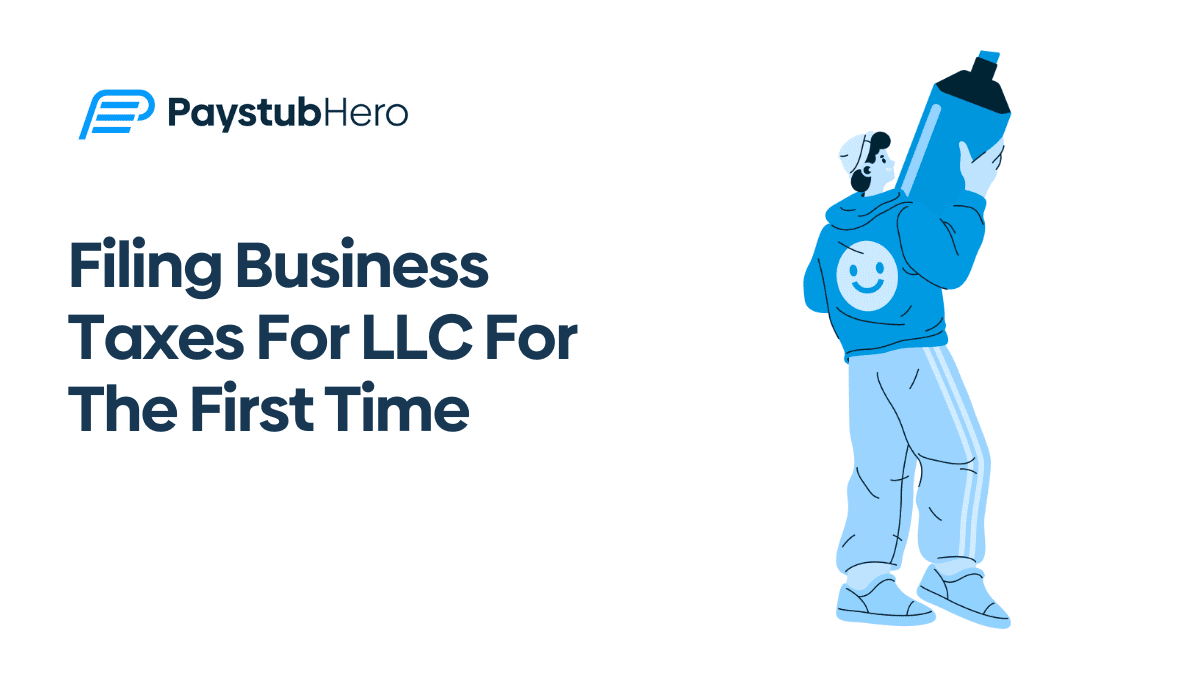The question of whether you can deposit someone else’s check into your bank account is one that often arises, whether you’re helping a friend, family member, or conducting business transactions. Navigating through the world of personal finance often presents us with various situations that may seem puzzling at first glance. One such situation you might encounter is the prospect of depositing someone else’s check into your own account.
This might occur in a variety of circumstances. Perhaps a family member out of town has a check they can’t deposit themselves, or maybe a friend trusts you enough to ask you to handle their banking in a pinch.
Whatever the scenario, it prompts the question: Can you deposit someone else’s check into your account?
Generally, the straightforward answer to this question is no. Banks and financial institutions usually don’t allow this practice due to security concerns and potential fraud risks.
However, as with many aspects of finance and banking, there are exceptions to the rule, caveats, and special processes that may make it possible under certain circumstances.
The rest of this article will delve into these scenarios, exploring the methods that might allow you to deposit someone else’s check into your account.
We will examine the concept of endorsing a check, the process of signing over a check, how banking policies might affect this process, the inherent risks involved, and finally, easier alternatives to this practice.
Understanding these topics will equip you with the knowledge to navigate this nuanced area of personal finance. Remember, your financial health and security should always be your top priority.
So, let’s get started with our first topic—understanding the rules around endorsing a check.
Table of Contents:
- Introduction: Can You Deposit Someone Else’s Check in Your Account?
- Understanding the Rules: Endorsing a Check
- How to Sign Over a Check
- Banking Policies May Differ
- Risks Involved in Depositing Someone Else’s Check
- Easier Ways to Transfer Money
- Cashing a Check
- Your Money Management with Paystubhero
Understanding the Rules: Endorsing a Check
Before you can successfully navigate the ins and outs of depositing someone else’s check into your own account, it’s essential to understand the concept of endorsing a check.
In the realm of banking, the term ‘endorsement’ has a specific meaning. It refers to the act of signing the back of a check to authorize its transfer from one party to another.
When a check is written out to you, the back of the check is usually left blank for you to sign, or ‘endorse,’ before you can cash it or deposit it into your account.
Now, suppose you find yourself in possession of a check written out to another person. They may wish for you to deposit it into your account for their benefit. How can this be accomplished?
The answer lies in a special endorsement. This process involves the person to whom the check is initially made out – the ‘payee’ – making a specific endorsement on the back of the check to transfer the check’s rights to you. This act is commonly referred to as ‘signing over’ a check.
In the next section, we will explore this ‘signing over’ process in detail, providing a step-by-step guide on how to do it properly.
We’ll also discuss why it’s crucial to handle such transactions with care and due diligence.
How to Sign Over a Check
When it comes to depositing someone else’s check in your account, it’s vital to understand how to sign over a check. This process involves the person to whom the check is initially made out—also known as the ‘original payee’—officially transferring their rights to the check over to you.
In the banking world, this procedure is known as a ‘special endorsement.’ Although it may sound daunting or complicated, it’s actually quite straightforward when you break it down step by step.
Firstly, the original payee needs to write ‘Pay to the order of [Your Name]’ on the back of the check. By doing this, they are effectively creating an instruction that the check is to be paid to you instead of them. This instruction is recognized by banks and financial institutions, making it a legal way to transfer the check’s rights.
Following this, the original payee will then sign their name underneath the ‘Pay to the order of’ instruction. This signature is an essential part of the process. Without it, the special endorsement is not complete, and the bank will likely refuse to honor the check.
Once the original payee has done their part, it’s your turn. You’ll need to endorse the check by signing your name underneath the original payee’s signature. By doing this, you are accepting the transfer of rights to the check.
This step-by-step guide should provide a clear understanding of how to sign over a check. However, while it may seem simple enough, it’s vital to remember that the acceptance of such a transaction ultimately depends on your bank’s specific policies. That’s what we’ll delve into in the next section.
Banking Policies May Differ
When attempting to deposit someone else’s check into your own account, one important factor to bear in mind is that banking policies may differ significantly between financial institutions.
What may be permissible at one bank may not be acceptable at another, making it crucial to understand the policies of your specific bank.
The banking industry operates on a set of rules and regulations designed to ensure the security of transactions and to protect customers from potential fraud.
However, each bank also has its own set of operational policies that may further dictate what can and cannot be done. These policies can impact various aspects of banking, including the process of depositing checks.
For example, some banks may allow the deposit of third-party checks (i.e., checks signed over to someone else) while others may not. There can also be significant differences in policies even among larger institutions.
Chase business checking accounts, for instance, might have a different stance on this matter compared to a bank like Bank of America or a local credit union.
This variance in banking policies means that before you attempt to deposit someone else’s check into your account, it’s always a good idea to reach out to your bank.
They can clarify their policy on the matter, guide you through their specific procedures, and alert you to any potential risks or liabilities. Remember, an informed customer is always a safer customer.
In the next section, we will discuss these risks in detail, helping you understand why banks tend to tread carefully when it comes to depositing someone else’s check into your account.
Risks Involved in Depositing Someone Else’s Check
The process of depositing someone else’s check in your account, while seemingly simple and innocuous, actually carries inherent risks. These risks are the primary reasons why many banks and financial institutions restrict or completely disallow this practice.
Understanding these potential pitfalls is crucial for anyone considering this kind of transaction.
First and foremost is the risk of the check bouncing. If the check issuer doesn’t have sufficient funds in their account, the check will bounce, and the bank will likely charge fees to the account into which the check was deposited.
In this case, even though you are not the original payee, you become financially responsible for the failed transaction.
Moreover, suppose the original payee disputes the transaction or claims that they did not endorse the check for deposit into your account. In that case, the bank may hold you accountable.
This could lead to a challenging legal situation, even if you believed you were acting in good faith. It’s a stark reminder that dealing with someone else’s finances can open you up to complications.
Lastly, and perhaps most importantly, is the risk of fraud. Check fraud is a common type of financial crime, and handling someone else’s check could inadvertently involve you in such activities.
Unwittingly depositing a fraudulent check could lead to serious consequences, including a freeze on your bank account, financial losses, and even legal troubles.
These risks underscore the need for caution when dealing with someone else’s checks. It’s often wiser to explore other, safer methods of transferring funds, which we will discuss in the next section.
Easier Ways to Transfer Money
As we delve into the complexity of endorsing and depositing someone else’s check into your account, it becomes clear that the process can be quite tricky, subject to varying bank policies and potential risks.
But fear not, we live in an era of advanced technology, where a variety of digital solutions have been designed to simplify financial transactions, making the transfer of money easier, safer, and more efficient.
Digital platforms have revolutionized the way we handle money. These platforms allow for quick and secure transfers without the need for physical checks or even a visit to a bank. Applications like Venmo, PayPal, and Zelle have become popular for their ease of use and the speed at which transactions can be completed.
Venmo, for example, allows you to transfer money instantly to anyone else with a Venmo account. Similarly, PayPal has become a global standard for online transactions and offers a suite of services from paying friends to completing purchases from online stores. Zelle, on the other hand, is often integrated directly into your bank’s app, making it a seamless and fast way to transfer money from your bank account to someone else’s.
Another solution might be to use a digital bank transfer, also known as a wire transfer, directly from the original payee’s bank to yours. While this method usually incurs fees, it can be a good option for larger amounts and provides a secure way to transfer money without the need for checks.
In the ever-evolving world of digital finance, these platforms and services have made financial transactions more accessible and convenient than ever. It’s certainly worth exploring these options as alternatives to depositing someone else’s check into your account. In the next section, we’ll explore yet another option – cashing a check directly.
Cashing a Check
After going through the potential challenges and risks associated with depositing someone else’s check into your account, you might be wondering if there’s a more straightforward alternative. Indeed, there is – you could simply cash the check.
Cashing a check essentially means exchanging the check directly for its cash value, rather than depositing it into an account. This process circumvents the need to transfer the rights of the check to someone else and could be a better option if depositing the check isn’t feasible, and the original payee is unable to cash it themselves.
Here’s how it generally works: the original payee would still need to endorse the check. Then, you can take it to the issuing bank – that is, the bank that the check is drawn on – and ask to cash it. Most banks will cash checks that are drawn on their bank for non-customers, although a fee may apply.
Additionally, some other establishments, such as check-cashing stores or certain retailers, might cash the check for you. However, these options often come with even higher fees and should be considered a last resort.
Keep in mind, though, that while cashing a check can be more straightforward, it still comes with potential risks.
For example, if the check is fraudulent or bounces, the entity that cashed the check will likely seek repayment from you. That’s why, as with all financial transactions, it’s important to ensure the check is legitimate and the issuer has sufficient funds.
Cashing a check may be a viable option in some situations, but for routine transactions and ongoing financial management, you may want to explore more efficient and digital-friendly solutions.
In the last section of this article, we’ll introduce you to an online solution that makes dealing with paystubs a breeze for entrepreneurs, freelancers, small businesses, and independent contractors.
Your Money Management with Paystubhero
As we explore the various aspects of handling financial transactions, including the ins and outs of depositing someone else’s check into your account, it becomes evident how vital it is to have streamlined, efficient solutions for managing finances.
This is particularly true for entrepreneurs, freelancers, small businesses, and independent contractors, who often handle their own financial matters. That’s where Paystubhero comes in.
Paystubhero is an online payroll software designed with your needs in mind. Its aim is to make handling financial documents easier and more efficient.
While large corporations have access to payroll giants like ADP or Gusto, these options can be too pricey or excessively complex for smaller entities. Recognizing this gap in the market, Paystubhero was born – a robust, simplified solution tailored to solo-entrepreneurs and small businesses.
Unlike traditional payroll systems, Paystubhero makes generating paystubs as easy as 1-2-3. All you need to do is enter your company and employee information, and the software handles the calculations, freeing you from the complexities and potential errors of manual computations.
This efficiency allows you to focus on growing your business, rather than getting lost in the administrative weeds.
Whether you’re an independent contractor who needs to provide a paystub to your clients, a small business owner handling your team’s payroll, or a freelancer looking to keep track of your income, Paystubhero can provide a tailored solution that fits your needs.
In a world where digital solutions are paving the way for greater efficiency and convenience, it’s time to take control of your financial management.
Why not simplify your payroll process with Paystubhero and spend more time doing what you do best – running your business and pursuing your passion.
Looking for a simpler way to generate your paystubs? Give Paystubhero a try and experience the ease of modern payroll management. Try Paystubhero today!
Frequent Asked Questions
- Can I deposit a check that is not in my name?
- It’s possible, but it depends on your bank’s policies. The check needs to be endorsed by the original payee and then signed over to you.
- What happens if you deposit someone else’s check?
- If the check is properly endorsed and your bank allows it, it can be deposited into your account. However, you may be held liable if the check bounces or if it’s disputed by the original payee.
- Can I cash a check with someone else’s name on it?
- Yes, but it requires the original payee’s endorsement. You’d usually go to the issuing bank to cash it, and a fee may apply.
- What if someone deposited a check in my account without my permission?
- If you believe a check was deposited into your account without your consent, contact your bank immediately. They can help address the situation and possibly initiate an investigation.








